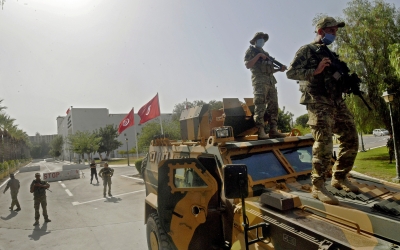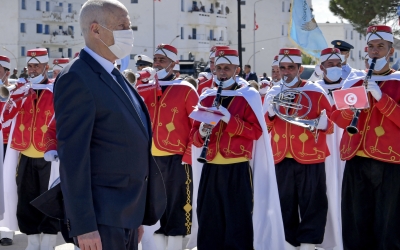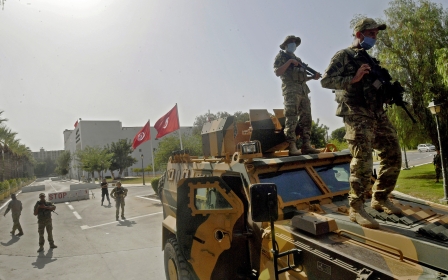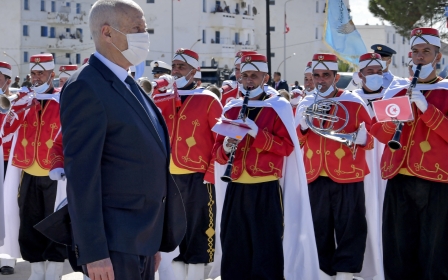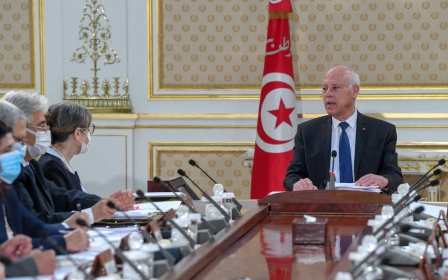Tunisia closes television channel and radio station critical of president
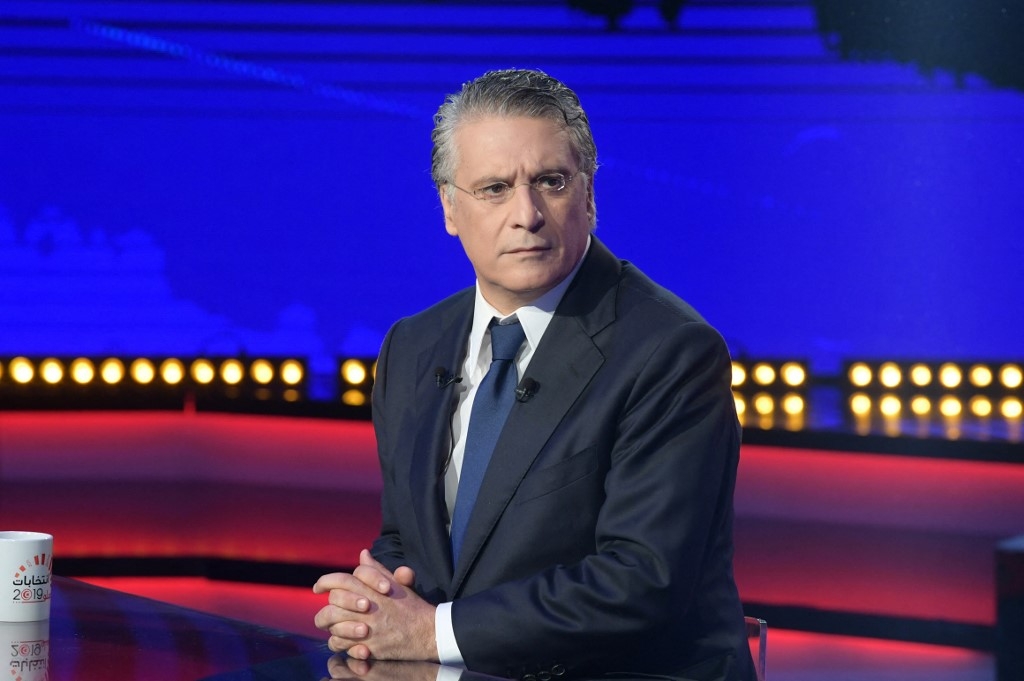
Tunisia's media regulator said on Wednesday it had closed a television station, Nessma TV, owned by the Heart of Tunisia party leader Nabil Karoui, and a religious radio station, Quran Kareem, saying both were operating without a license.
The stations have been critical of President Kais Saied, who seized executive power in July in a power grab.
Haica, the regulator, had also earlier this month closed Zaytouna, which was also unlicensed and critical of Saied.
The Nessma television station and Quran Kareem religious radio station have operating for years without a licence.
In a statement, Haica said it had seized the broadcasting equipment of Nessma, which is also partly owned by former Italian prime minister Silvio Berlusconi.
"Despite multiple letters and meetings, the channel continued its activities illegally," the regulator said.
It also attributed the closure to "suspicions of financial and administrative corruption," adding that the channel's ownership by a political party leader "influenced the content of its programmes".
"Nesma is owned by a leader in the Heart of Tunisia party, which was reflected in its contents, which violated the principles of freedom of audiovisual communication," the regulator said.
Haica had previously seized the channel's equipment in April 2019 for the same reasons.
The regulator said: "Quran Kareem was promoting hate speech to incite violence and hatred."
The station is owned by Said Jaziri, a member of the parliament Saied suspended in July.
Anti-corruption purge
Since July, Saied has granted himself sweeping powers, hitting judges, MPs and businessmen with arrests and travel bans in what he has labelled as an anti-corruption purge.
A runner-up in the 2019 presidential election, Karoui has been held alongside his brother in Algeria since late August on charges of "entering the country illegally".
He has been under investigation in his home country since 2017 in a money laundering and tax evasion case.
Rights groups have criticised Saied's moves against media that oppose him as an attempt to undermine press freedoms and rights in Tunisia, which has been a democracy since the 2011 revolution.
Tunisia has seen years of political deadlock since 2011, with fractious coalitions and short-lived governments proving unable to resolve pressing social and economic crises.
Elections in 2019 produced another fragmented parliament, with Ennahda, which has been part of every parliamentary coalition since the revolution, the largest party in parliament.
Middle East Eye delivers independent and unrivalled coverage and analysis of the Middle East, North Africa and beyond. To learn more about republishing this content and the associated fees, please fill out this form. More about MEE can be found here.


